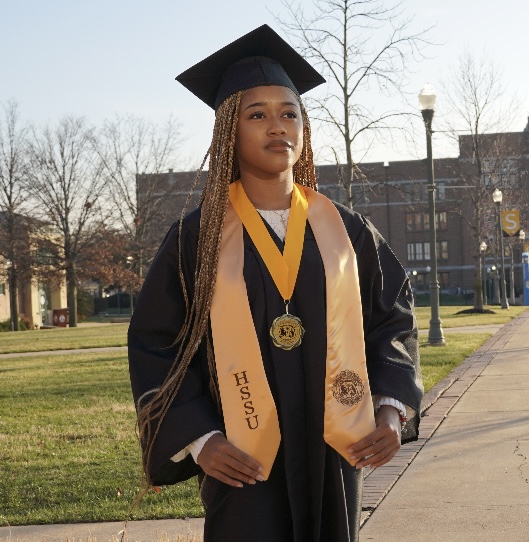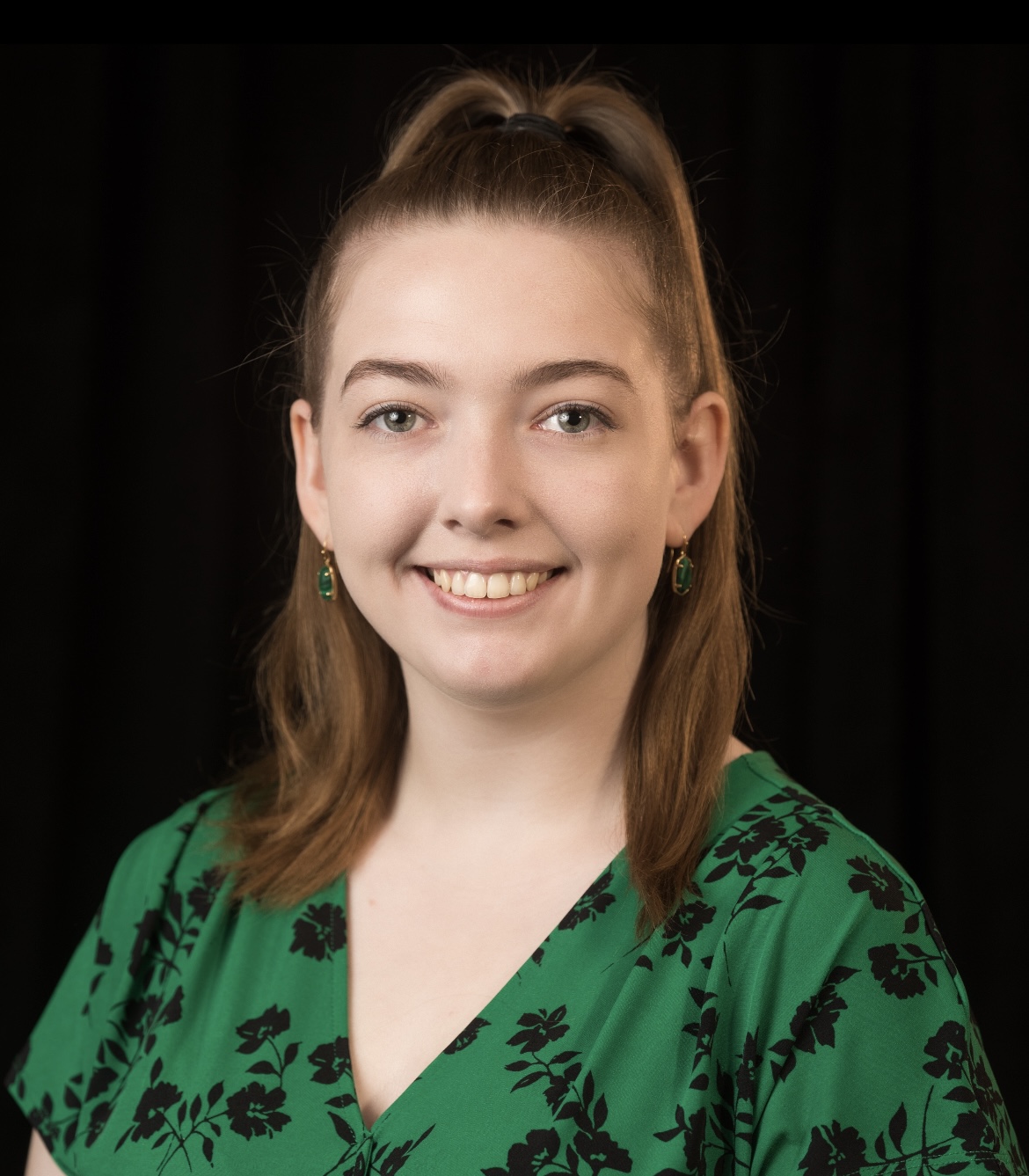Two Biological Sciences Students, LAGNiAppE Scholar Receive NSF GRFP
May 09, 2024

Iyana Oliviel
Two Biological Sciences students and one LAGNiAppE scholar have been named 2024 National Science Foundation Graduate Research Fellowship Program (NSF GRFP) Awardees. The five-year fellowship provides three years of financial support for recipients and their research.
The award goes to outstanding students and scholars performing research in the STEM (Science, Technology, Engineering and Mathematics) field and is the oldest award of its kind.
Iyana Oliviel is originally from the south suburbs of Chicago. She became a LAGNiAppE Scholar in the summer of 2023 and was named a 2024 NSF GRFP recipient.
“ This shows my capabilities of being able to think of a proposal and that I have the potential to carry it out. Follow your heart and passions. It doesn't have to make sense to other people. ”
"I was in disbelief but then I was really proud and I cried a little bit," said Oliviel.
She conducts research in Patricia Schneider, PhDs lab determining what cis-regulatory elements are affecting the asymmetric gene expression within the retina of four-eyed fish.
"Within their retinas, there's a genetic cut off of what genes are being expressed in the top and bottom parts," said Oliviel. "I'm looking at what enhancers and what cis-regulatory elements are affecting that pattern."
She will begin her graduate school journey in the fall of 2024 at Miami University in Ohio.

Rachael Coates
Rachael Coates, a Biological Sciences major and senior from Pride, Louisiana is a first-generation college student and works in Todd Monroe, PhDs biological engineering lab.
She's studying breast cancer metastasis and looks at what makes cancer spread from one part of the body to the other and why it's so aggressive. Coates has taken a deep dive into how cancer leaves blood vessels and goes into secondary tumor sites.
As a MARC program student, she's had help from advisors like Dr. Vicente who helped her craft her application and have been instrumental in her success.
“ I learned to be a good mentor in the lab I'm in now since Dr. Monroe took in undergraduate researchers from several other labs. All the mentors I have had so far have been excellent mentors and role models. ”
The Louisiana native spent the summer of 2023 researching at the Massachusetts Institute of Technology (MIT) that's had a significant role in the development of many areas of modern technology and science. Coates' team worked on creating a device that housed tiny blood vessels. Once they put cancer cells through those blood vessels, they could watch them leave. It's opportunities like this that come from having good mentors, something she wants to be for others in the lab.
She plans on going to graduate school at Northeastern University in Boston.
Abigail Randolph, a first-generation college student from Pearl River Louisiana, also was awarded the NSF GRFP. While at LSU, she worked with Ryoichi Teruyama, PhD looking at oxytocin receptor expression in the gut. She also worked in Amanda Staiano, PhDs lab at the Pennington Biomedical Research Center. Randolph worked on curricula for the Louisiana Department of Health that communicates evidence-based information to early childhood education centers.

Abigail Randolph
“I’m grateful,” said Randolph. “I attribute my success applying for this award to experiences I had at LSU.”
Along with her research experience, her participation in Geaux Teach and as a Supplemental Instruction Leader fostered a lasting interest in science communication. Randolph maintains that science should belong to everyone.
“ Equitable access to science is important, and there’s a push for researchers to communicate their work more broadly, especially by the National Science Foundation. ”
The LSU alumna is slightly switching gears in her research at Florida State University. She's looking at the effect of early life exposure to a Western diet, or a diet high in fat and sugar, specifically on the development of glucagon-like peptide-1 circuitry in the brain and the periphery. She hopes her data will provide further rationale for policy promoting equitable access to nutritious food, especially during pregnancy.